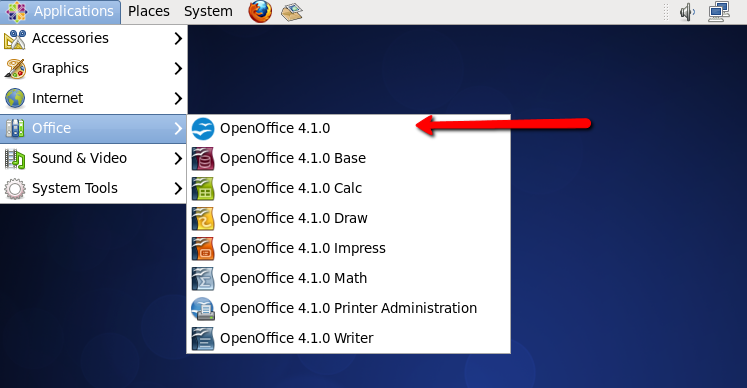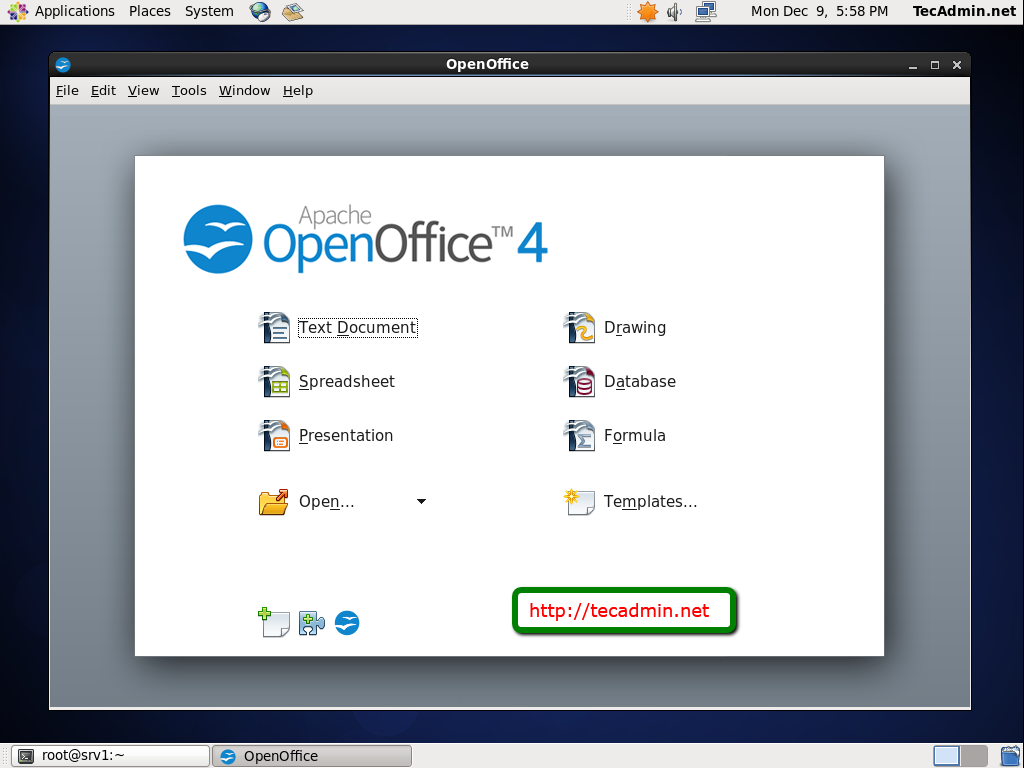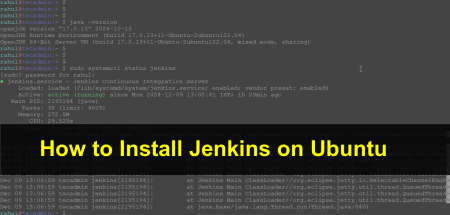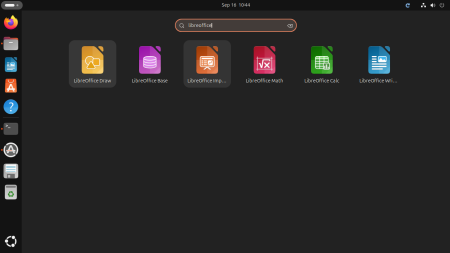Installing Apache OpenOffice on Fedora is a simple process that allows you to use a powerful, free office suite on your computer. OpenOffice includes programs like a word processor, spreadsheet, and presentation maker, which are similar to Microsoft Office. In this guide, we will explain how to install Apache OpenOffice on your Fedora system in easy steps. Whether you are new to Fedora or installing software for the first time, this guide will help you get started quickly and easily.
System Requirements:
- Operating System: Fedora 30 or higher.
- Processor: 64-bit (x86-64) or higher.
- Memory: At least 256 MB of RAM, but 512 MB or more is recommended for better performance.
- Storage: At least 400 MB of free disk space for the installation files and additional space for user files.
- Display: Minimum resolution of 1024×768 pixels or higher.
- Java Runtime Environment (JRE): While not mandatory, installing JRE is recommended for full functionality of all features.
Make sure your system is up-to-date and meets these requirements to ensure a smooth installation and optimal performance of Apache OpenOffice.
Step 1: Check Java Version
First, make sure you have Java installed on your system. It is recommended to use the latest version of Oracle Java 1.6.x, patch level 45, or the latest Oracle Java 7, 8, or OpenJDK 7/8. Use the following command to check the installed Java version.
java -version
If Java is not installed, follow the instructions for Installing Java on Fedora.
Step 2: Download OpenOffice
You can visit the official download page to download the latest version of Apache OpenOffice.

The command line users can use the following command to download OpenOffice 4.1.15.
wget https://sourceforge.net/projects/openofficeorg.mirror/files/4.1.15/binaries/en-US/Apache_OpenOffice_4.1.15_Linux_x86_install-rpm_en-US.tar.gz
Once the file is downloaded, extract the archive file with the below command:
tar xzf Apache_OpenOffice_4.1.15_Linux_x86_install-rpm_en-US.tar.gz
After extracting the archive, it will create an installation directory named en-US, and place all the files there.
Step 3: Install Apache OpenOffice
Navigate to the Apache OpenOffice installation directory and to its RPMS folder, You will see a list of RPMs there. Install all RPMs using the following command.
cd en-US/RPMS/sudo rpm -Uvh *.rpm
Now install the desktop integration features for your setup. Navigate to the desktop-integration directory, and install the menus package.
cd desktop-integration/sudo rpm -Uvh openoffice4.1-redhat-menus-*.noarch.rpm
Step 4: Launch Apache OpenOffice
After successfully installing all the packages in the above steps, Launch the OpenOffice from the launch icon under applications.
Congratulation’s You have successfully installed Apache OpenOffice on a Fedora system.
Conclusion
Now you have successfully installed Apache OpenOffice on your Fedora system! You can start using it for your documents, spreadsheets, and presentations. OpenOffice is a great tool that can help you with many tasks, and it’s completely free. If you followed the steps in this guide, you should have no problems using OpenOffice on Fedora. Enjoy exploring all the features of Apache OpenOffice and happy computing!





23 Comments
got down to the last command re: menus and got “redhat” is required.
tried freedesktop instead of redhat in menus command and got xyz conflicts with LibreOffice xyz
Not uninstalling LibreOffice on my production machine. I’ll wait for a more intelligent way to install on fedora
glh
My last try at trying to install Openoffice. Fresh install of Fedora30. Removed LibreOffice. Followed the instructions, no errors. Icons appear in the Office section, but nothing happens. Installed OK on Ubuntu and Zorin(Ubuntu based) and obviously Windows 10. I give up.
I have installed this successfully before, but this time I get this. I removed libreoffice before installing OpenOffice.
[root@localhost desktop-integration]# rpm -Uvh openoffice4.1.6-redhat-menus-4.1.6-9790.noarch.rpm
Verifying… ################################# [100%]
Preparing… ################################# [100%]
Updating / installing…
1:openoffice4.1.6-redhat-menus-4.1.################################# [100%]
/bin/gtk-update-icon-cache
gtk-update-icon-cache: Cache file created successfully.
/bin/gtk-update-icon-cache
gtk-update-icon-cache: Cache file created successfully.
[root@localhost desktop-integration]# openoffice4
ERROR: ld.so: object ‘/lib/$LIB/liblsp.so’ from /etc/ld.so.preload cannot be preloaded (wrong ELF class: ELFCLASS64): ignored.
ERROR: ld.so: object ‘/lib/$LIB/liblsp.so’ from /etc/ld.so.preload cannot be preloaded (wrong ELF class: ELFCLASS64): ignored.
/opt/openoffice4/program/javaldx: error while loading shared libraries: libcrypt.so.1: cannot open shared object file: No such file or directory
ERROR: ld.so: object ‘/lib/$LIB/liblsp.so’ from /etc/ld.so.preload cannot be preloaded (wrong ELF class: ELFCLASS64): ignored.
/opt/openoffice4/program/soffice.bin: error while loading shared libraries: libcrypt.so.1: cannot open shared object file: No such file or directory
[root@localhost desktop-integration]# rpm -Uvh openoffice4.1.6-redhat-menus-*.noarch.rpm
Verifying… ################################# [100%]
Preparing… ################################# [100%]
package openoffice4.1.6-redhat-menus-4.1.6-9790.noarch is already installed
[root@localhost desktop-integration]#
Have I done something wrong here?
tyr to change “openoffice4.1” to “openoffice4.1.6”
I have this error
[root@permotion desktop-integration]# rpm -Uvh openoffice4.1-*.noarch.rpm
error: File not found by glob: openoffice4.1-*.noarch.rpm
[root@permotion desktop-integration]#
Hi,
I am getting:
[mcpminer@mcpvlnx249 output]$ openoffice4
javaldx: Could not find a Java Runtime Environment!
/opt/openoffice4/program/soffice.bin: error while loading shared libraries: libfreetype.so.6: cannot open shared object file: No such file or directory
Altough my JAVA_HOME is set correctly.
Any idea?
Cheers, Csaba
Everything went smooth for me.
Thank you.
no passo 3 o comando não é rpm -Uvh * .rpm , e sim rpm -Uvh * .rpm
Acho q vc quis dizer “rpm -Uvh *.rpm”
This worked as charm. To make sure installation happens without error run the last rpm command with root privilege.
Thanks. excelente
my OpenOffice 4.1 hasn’t opened yet> the installation wizards reads “The destination folder specified does not contain a OpenOffice 4.1.0 version…” i have tried to change folders many times but it still gives the same result. what else can i do to make it work? ( i use windows 7)
Great ! Thanks a lot. it working fine.
This is the the third method of trying to install OO Ive used. It does not work either. Like previous user I get no file exist error and there is no OO in my list of applications anywhere.
Please help. I’ve used Lebre Office but their is a severe bug that Ive now discovered is a recurring bug thru several versions that has not been solved and that bug (a copy issue) has totally FUBARED my ability to rearrange student records into their new classes for the summer. All this was orginally written in OO on a windows 7 computer with OO (that has since been stolen)
great!! worked nicely, keep the nice work up!
Thanks. I was looking for a tutorial just like this. I was able to install it in a matter of minutes (no kidding… around 5 minutes) on Fedora 20 w- XFCE. The whole process was flawless. Nicely done, sir, and thank you again.
Thanks. Followed your instructions to the letter. Open Office 4.0.1 is now installed and fully operational on my centOS 6 machine.
Not working for me, either. I followed all the steps, they all seemed to work, but then when I get to Step 4, I can’t start OpenOffice by either command line or GUI. On the command line, when I type openoffice4, I get “bash: openoffice4: command not found” and when I try to use the GUI under Applications/Office, it’s simply not there. What did I do wrong?
i too have the same problem…..
run it as root
Example:
# cd en-US/RPMS/
# sudo rpm -Uvh *.rpm
# cd desktop-integration/
# sudo rpm -Uvh openoffice4.1-redhat-menus-4.1-9764.noarch.rpm
Not Working, i am Unable to Open Open office
Hi Ravi,
Are you getting any error ? and what option are you using to openoffice4 GUI or CLI ?